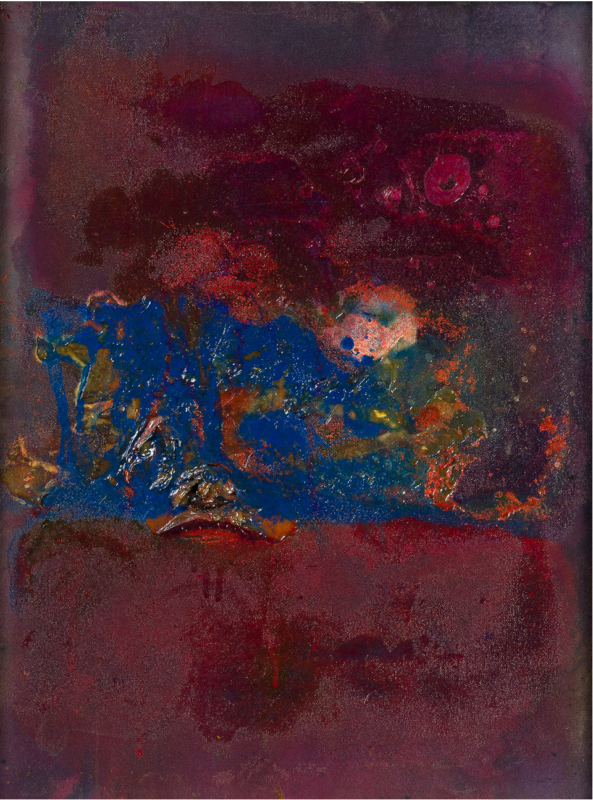1934- Present
Works in the Collection
Biography
For over six decades, Sir Frank Bowling has been recognized as one of the foremost British artists of his generation. Born in British Guiana (now Guyana) in 1934, Bowling moved to London in 1953 and graduated from the Royal College of Art in 1962, receiving the silver medal for painting. Initially known for his work with expressionism and pop art, he soon transitioned to expressive abstraction, integrating personal memory, autobiographical elements, and socio-political concerns into his work. Splitting his time between London and New York, Bowling voiced frustration over the critical invisibility of Black artists and the narrow parameters by which his art and that of his peers were assessed. In 1969, he organized, curated, and wrote the catalogue essay for 5+1, an exhibition showcasing the work of five African American abstract artists alongside his own recent paintings. As an editor for Arts Magazine (1969–1972), he advocated for broader critical recognition and resisted the reductive categorization of “Black Art” as purely political.
Bowling’s work explores light, color, and materiality. He became a Royal Academician in 2005 and was awarded the OBE for Services to Art in 2008. In the Queen’s Birthday Honours (2020), he was knighted. In 2022, he received the Wolfgang Hahn Prize, recognizing exceptional contemporary artists. Bowling’s work is held in over 50 major collections worldwide, including the 50th Venice Biennale, Tate Britain, and MFA Boston to SFMOMA. He has also been the subject of the BBC documentary Frank Bowling’s Abstract World. A defining figure in post-war abstraction, Bowling has said, “I was always very conscious of scratching out and of new interpretations replacing the old; updating traditions.”
